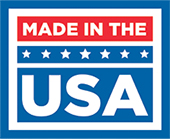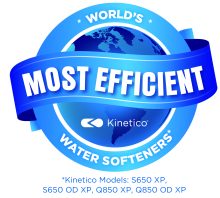Water Softener vs. Reverse Osmosis: What System to Choose
Every homeowner wants to improve their home’s water quality, two popular systems that people often use for this are water softeners and reverse osmosis systems. Both systems offer different benefits, but choosing the right one for your home depends on the specific water concerns in your area. Let’s understand the key differences between these systems and why using both of them together might be a wise decision for many households.
What do Water Softeners do?
Water softeners are built to eliminate minerals such as calcium and magnesium from hard water and turn it into soft water. While drinking water containing these minerals is harmless, it can cause severe damage to your home’s plumbing, appliances, skin and hair. Have you ever noticed limescale buildup on your taps or watermarks on your dishes, if yes, then you probably have a hard water supply.
Benefits of Water Softeners
Protects Appliances: Prevents mineral deposits in dishwashers, washing machines and water heaters, increasing their lifespan.
Better Skin and Hair: Provides soft water for bathing, that is much gentler on your skin and hair, making it a great choice for individuals who have sensitive skin.
Easier Cleaning: Soap lathers better in soft water and is easier to rinse off, so there are fewer spots on glassware and laundry is also softer.
Although water softeners offer many benefits, they do not filter out impurities such as chlorine, heavy metals, microorganisms, etc. Their main role is to improve the feel of the water and prevent damage caused by mineral deposits.
How do Reverse Osmosis Systems work?
Reverse osmosis (RO) systems are designed to filter water by removing contaminants like heavy metals, chemicals, bacteria, etc. They use a multi-stage filtration process in which water is forced through a semi-permeable membrane, leaving impurities behind.
Benefits of Reverse Osmosis Systems
Pure Drinking Water: It provides clean, fresh-tasting water for drinking and cooking meals.
Removes Contaminants: It removes harmful contaminants from your water making it safe for consumption.
Compact Design: RO systems are sleek and compact and can be easily installed under sinks in a concealed way.
One drawback of a reverse osmosis system is that it does not help combat hard water issues. Although it filters water, it isn’t able to prevent scale buildup.
Why Combining Both Systems is a Wise Decision
If you want the best water quality for your home, you must install a water softener along with a reverse osmosis system. Here’s why this is a complete solution:
Whole-House Benefits: A water softener removes hard water minerals from your water, protecting your plumbing and appliances from hard water damage.
Drinking and Cooking: An RO system filters the water you consume, removing harmful impurities and making it safe for consumption.
Improved Efficiency: Hard water can clog the membrane of your RO, but a water softener can help prevent this and improve your RO’s efficiency.
Cost Savings: While you may initially feel that investing in both systems is costly, combining them can help reduce maintenance costs and increase the lifespan of your appliances.
Contact Rabb Water
Get in touch with Rabb Water today for the installation of an RO system and water softener in Lafayette. We provide tailored solutions that seamlessly meet your unique needs. Whether you need help in choosing a water filtration system, its installation, or salt delivery, we are here to provide you with all the assistance you require.




